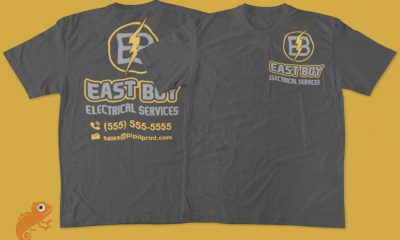
A business mantra that you may have heard of is “failing faster”. This can be interpreted in many ways and it’s often misunderstood by students and budding entrepreneurs who are trying to get their big break in the world of business.
For some, failing faster means to quickly cut their losses and get out of a business while it’s sinking. This is a good interpretation of the saying, but it’s not the full story. Yes, it’s important to get out of a business if it has stopped growing before more of your time, effort and money are invested, but failing faster holds a deeper meaning and it’s even more important than ever for new entrepreneurs to grasp the concepts behind it.
What is failing faster?
Picture it this way; what is the number one source of knowledge that people rely on to grow themselves as well as their business? Tech-savvy people will say the internet, and they would be partially correct. The internet is indeed a database of knowledge that collectively contains far more information than any library in the world, and there are thousands of articles, journals and case studies to look at for inspiration and help. Older business owners are likely to say from other people. Industry veterans, figureheads and mentors are all perfectly good examples of good sources of information and guidance. Yet, there’s one thing that remains certain; all of these sources are derived from one simple method of acquiring knowledge: experience.
This is why failing faster has the most potential for building up your knowledge. The more things you expose yourself to, the more likely you’ll be able to learn from your own experiences and thus, build a better brand and develop yourself as an entrepreneur. It’s important to note that experience alone won’t turn you into a successful business owner, but it plays a major role in applying whatever you have learnt in a real-world scenario.
How do you fail faster the right way?
There are a number of different ways to fail faster without harming your own chances of success. The first would be rapid manufacturing. Ideas don’t always work out, and some companies can spend months or years working on a project that is ultimately scrapped because the fundamental idea was flawed. This is a huge waste of time and resources, which is why rapid prototyping of a product is needed to get it into the hands of consumers to gather feedback and suggestions.
The goal isn’t to get it right on the first try, but to have a product that can be talked about and tested before you invest more money and resources. Imagine if you spent the entire evening baking a large and extravagant cake, only to realise that you used the wrong type of flour in the end and created something inedible. It would’ve been wise to test it first by using fewer ingredients and tasting it before you decided to invest more money and time into it.
The same concept applies to business. If you want to have a better final product, then you need to fail faster and get your ideas out there in a timely manner so that you can grow them steadily instead of trying to surprise the industry and consumers with something.
Business
ServiceNow Development Consultancy: Business Process Automation as Disruptive Technology

In the age of AI and Machine Learning, automating business processes has become a must for any business that wants to remain competitive in their industry. Business process automation consists of setting up any process to be completed mostly by any existing technology with minimal manual input from human employees. For organizations seeking to optimize their workflows, engaging with a specialized ServiceNow implementation consultancy can be a game-changer, offering tailored solutions to streamline operations.
Examples include implementing an inventory management system so both you and your customers have access to accurate data on what products are available, sending out confirmation emails after purchase, having sales reports automatically generated through a CRM platform, social media posting schedules, and most email marketing tasks.
There are many reasons why business leaders have been turning to tech to improve their companies in recent years. The benefits of business process automation far outweigh the costs. These benefits range from increased efficiency, cost savings, scalability, and improved accuracy, to enhanced customer experience. Automating tasks in areas such as HR helps with employee onboarding and retention, and automation in all areas saves time when it comes to drafting reports and communicating with leads.
Marketing automation is responsible for a 14.5% boost in sales and a 12.2% decrease in marketing expenses (source: Nucleus Research). When employed in HR processes, business automation has shown that automation processes, when applied to onboarding, increase new hire retention by 16% (source: LinkedIn).
As is the case with any disruptive technology, business automation also poses risks, especially for more vulnerable sectors. It is estimated that by 2030, 47% of jobs in the United States are at risk of being displaced by automation (source: Science Direct). In the United States, workers aged 16 to 24 are the most exposed to the risk of automation, as 49% of these workers could have their jobs displaced by automation processes (Brookings).
Various government and company policies can be put in place to provide upskilling and reskilling for these workers to minimize the risk business process automation poses to some members of the workforce. However, it is clear that business process automation is here to stay.
Other concerns brought up by automation include data privacy and protection and copyright issues. Because automation involves storing confidential data in the cloud, businesses are concerned about security breaches by competitors or, worse, malicious users wishing to scam their current clients. Business leaders are paying more attention to cloud infrastructure services to minimize these risks.
Cloud infrastructure security can protect your business’ data through advanced encryption. Regular audits and compliance are automated but still supervised by human employees to ensure security has not been compromised. Data segmentation and isolation can also ensure your company’s data is not easy to access, even if there has been a breach.
On the other hand, some processes involving AI can end up infringing copyright laws in various industries. This can lead to large expenses in legal fees if AI is not used mindfully by departments, without mentioning the PR risks of your company accidentally employing someone else’s copyrighted content.
In conclusion, business process automation is a process including a wide array of existing technologies (AI, ML, etc.). Through business automation, business sectors start to delegate tasks to technological solutions.
As a result of automating tasks, there is proof of increased proficiency and accuracy, enhanced customer experience, and saved costs. However, there is also resistance from some sectors of society, as automation can result in job displacement for some existing members of the workforce.
To mitigate this, business leaders can emphasize the fact that they are automating processes while still making an effort to retain skilled workers. Upskilling and reskilling can help businesses retain employees whose jobs have become obsolete. Many governments are also expected to step up with a series of policies to protect the interests of these workers.
Business
Turn Your Passion into a Career: How to Make Money Doing What You Love

Many dreams of turning their hobby, passion, or creative outlet into a career. It’s a beautiful idea, but it can take time to figure out where to start. Here’s a guide on successfully turning your hobby into a career.
Do Your Research
Before you turn your hobby into a business, please research and find out what the industry looks like, your potential customers and their needs. Next, consider your strengths, skills, and knowledge and decide how to use them in this new venture. Finally, consider what makes you unique in the industry and how you can market yourself.
Take A Strong Career Test
A Strong Career Test can help you identify your ideal job and the type of environment you would flourish in. In addition, knowing this information can give you an idea of what kind of business to start and whether it’s something you’d be passionate about.
Think About Finances and Legalities
Once you have an idea of what you want to do, consider the financial aspect – are there any costs associated with getting started? What sort of budget will you need? Will there be any tax implications? It’s also essential to think about the legal side of things – if necessary, consult with a lawyer specializing in business law so that you understand all the regulations associated with starting up and protecting your intellectual property rights.
Create a Business Plan
Now that you have researched and considered the legalities and finances involved, create a business plan that outlines all this information. Make sure it includes short-term and long-term objectives to keep track of your progress over time. Be realistic when setting targets for yourself – don’t aim too high at first because this could set you up for failure if it doesn’t pan out. Also, consider whether or not there is potential for growth or expansion once your business gets off the ground. This may include marketing strategies such as social media campaigns or investing in advertising materials such as brochures or flyers.
Start Networking
Networking is essential when launching any new business; it’s about building relationships with people who may be interested in your offer. Start by reaching out to family, friends, and acquaintances who may already know about your business or service offering; they may even be willing to share it with others! Additionally, join online groups related to your area of expertise – these are great places for exchanging ideas with like-minded people and potentially finding potential customers/collaborators/mentors/partners, etc. Finally, attend events such as trade shows or conferences where relevant topics are discussed – these are ideal opportunities for making connections within the industry that could prove beneficial down the line!
Turning your hobby into a career is no small task, but it can be approached thoughtfully and strategically! Please research the industry thoroughly before beginning to understand its nuances; familiarize yourself with the legalities of running a business; create a viable yet ambitious business plan; network extensively (both online & offline). And never give up! With dedication & hard work, anything is possible.
Business
5 Things To Keep In Mind When Changing Careers

Your dream job may be much closer than you think – and it might not even be in your current industry.
Many people aren’t aware that hundreds of jobs out there offer a higher salary than their own and career growth and stability. These jobs often require skills not used in their routine work but can provide an easier transition to a new job within the same company or industry and more career opportunities down the line.
To get started on finding the right opportunity for you,
Here are some things to keep in mind:
Figure Out What Exactly You Want From Your Career
Sometimes, figuring out what we want from our lives is the most difficult part of getting somewhere. So What do you want? If you could have any kind of job in the world, what would it be?
If you don’t know where to start, think about the things that make you happy. Do you enjoy helping people? Do you like making money? Do you like staying at home and never going outside of your house? All of these are possible career paths, but knowing what’s right for you will go a long way towards helping you choose the best opportunities from which to choose.
Don’t Overlook Smaller Opportunities
Don’t limit yourself by thinking that only Google and Facebook can give you fulfilling work! There are many jobs out there suited to almost every kind of person, so if those big names don’t sound appealing to you, keep searching until something does.
Make Sure the Opportunity Fits Your Lifestyle
Do you have anything keeping you from pursuing the career path of your dreams? Maybe you have children or elderly parents who rely on you. Maybe you have bills to pay online casino real money every month. Don’t let any limitations keep your dreams from being realized!
If you can’t give up everything in your life to pursue a new career, don’t worry! There are many jobs that allow you to work from home or just work part-time while still earning a steady income, make sure to learn more about these opportunities. They might not pay as well as traditional jobs, but they will reduce some of your living expenses and provide you with more time to do what’s important to you.
Don’t Limit Yourself By Your Current Skill Set
A lot of people think that if they aren’t proficient at using Microsoft Excel, they can’t get a data science job. This isn’t true at all! In fact, the majority of data science jobs don’t require you to be fluent in Excel! So even if you’re not good at using it now, don’t think that it will stop you from getting a new and better job.
Ask Your Friends for Help
If you’re unsure about what career path might be right for you, ask your friends for help. If they know of something that sounds interesting or fulfilling to them, there’s a good chance they’ll know someone who works in that field or can put you forward for an interview with one of their contacts. But beware: asking your coworkers is probably the number-one way to find out how boring your current job really is!
Good luck!
-

 Travel11 months ago
Travel11 months agoImmerse Yourself in Nature: Explore Forest Bathing with a New Guidebook
-

 Europe10 months ago
Europe10 months agoBarcelona and Athens: cities that will leave an everlasting impression
-

 Health10 months ago
Health10 months agoExperience in clinical quality: What is it, and why is it important?
-

 Technology11 months ago
Technology11 months agoHow Virtual Fly Elevates the World of Flight Simulators
-

 Business6 months ago
Business6 months agoServiceNow Development Consultancy: Business Process Automation as Disruptive Technology
-

 Environment7 months ago
Environment7 months agoThe Future of Fashion: The Rise of Eco-Conscious Brands in the Luxury Market
-

 Business9 months ago
Business9 months agoScreen Printing Services: A Beginner’s Guide to Avoiding Mistakes and Maximizing Your Investment
-

 Travel7 months ago
Travel7 months agoEnjoy a luxury holiday in Zanzibar











